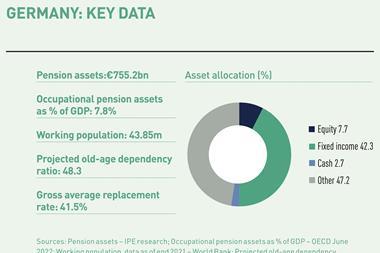Pension funds and other institutional investors around the world will take part in a class action against EY for its role in examining Wirecard’s balance sheets.
The highest regional court in Bavaria, based in Munich, yesterday ruled that the case of private investor Kurt Ebert against Wirecard was set as an example to start a so-called ‘model case proceeding’ (Musterverfahren), opening up the way for other investors claiming damages for the insolvency of the German company.
“In the next steps, [law firm] TILP will take a position in the ‘model case proceeding’ against EY, which means laying out evidence from witnesses and experts,” Martin Kühler, a lawyer at TILP told IPE. He added that the judge will receive a position statement from the other side in the proceeding and will then decide on a date for the hearing in Munich that will take place in the presence of complainants and approximately 30-40 lawyers.
TILP represents 182 institutional investors in the proceeding against EY, mainly from Europe, the US and Asia, together with law firm DRRT, currently pursuing claims totalling €118m, it said.
But it is preparing to add further claims for damages of institutional investors in the Wirecard case. Therefore, the volume of claims will likely reach €1bn, it added. TILP is also the law firm for more than 15,000 private investors in the proceeding.
“It is important to know that all Wirecard shareholders globally have six months to join the class action; after the six months period there isn’t a possibility to take part in the proceeding,” Kühler said, adding that the law firm expects the hearing in Munich to take place most likely next year.
A spokesperson for the highest regional court in Munich told IPE that the proceeding is at its very beginning and a date for the hearing has not yet been set. The spokesperson added that the case could potentially end up before the Federal Court of Justice (Bundesgerichtshof).
Kühler explained that now the proceeding of all plaintiffs against Wirecard are suspended in Germany, and judges in the country are tied to the decision of the highest regional court in Bavaria, further underlying the importance of the recent ruling of the court in Munich.
Wirecard filed for insolvency in 2020 after €1.9bn went missing from its balance sheet, causing a political shock in Germany, leading to the country’s supervisory authority BaFin being accused of failing to oversee activities at Wirecard.
The district court in Munich had given the go-ahead for a class action from investors against EY last year, among others, in conjunction with the insolvency case of Wirecard.














